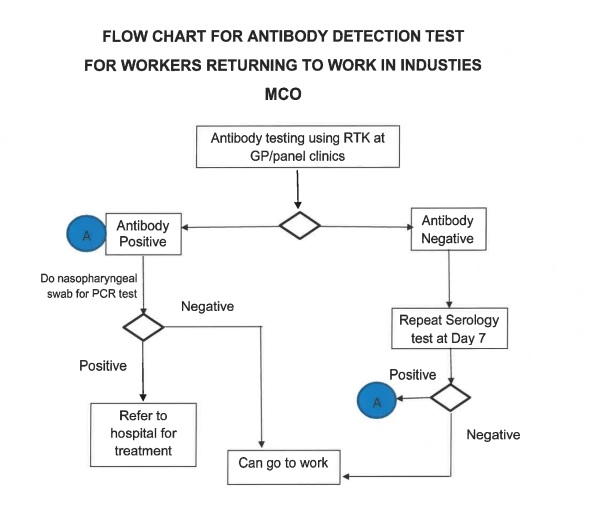KUALA LUMPUR, April 24 – The Ministry of Health (MOH) has advised the Social Security Organisation (Socso) on Covid-19 screening procedures and suitable tests at private clinics for workers returning to work.
Health director-general Dr Noor Hisham Abdullah said the Covid-19 screening for workers from industries approved to operate during the Movement Control Order (MCO), of which Socso will bear the costs, could be done at private or Socso panel clinics, using MOH-collaborating private laboratories, through PCR tests or rapid antibody tests.
“At the same time, MOH recommends that all Socso panel medical practitioners take complete medical history, including overseas travel history, exposure to positive Covid-19 cases, and attendance at any gathering or exposure to people who attended gatherings,” Dr Noor Hisham said in a letter to Socso CEO Mohammed Azman Aziz Mohammed on April 21, as sighted by CodeBlue.
According to MOH’s screening standard operating procedure (SOP), if the PCR tests for coronavirus show negative, workers can start working. But it is positive, they will be treated as Covid-19 patients as per MOH guidelines.
PCR tests in the private sector cost between about RM400 and RM700 for individual users, and take 24 to 48 hours to yield results at laboratories.
As for the antibody test, also known as serology tests, MOH recommended the usage of serology rapid test kits (RTK) that are validated by Institute of Medical Research (IMR) or the National Public Health Laboratory (NPHL). The rapid antibody tests recommended are Lionrun Shanghai Liangrun Diagnostics Kit, Wondfo, Vazyme, Standard Q Covid-19 igM/IgG Combo, and Healgen.
Even if the antibody test shows negative, the worker is still not allowed to go to work and will have to retake the test on the seventh day since the first testing. If it shows negative again, only then can the worker resume work. If the serology RTK shows positive, whether on Day 1 or Day 7, clinics are ordered to perform a nasopharyngeal swab for PCR testing on the worker.
“All PCR positive result must be treated as Covid-19 positive patients, as per MOH guidelines,” said Dr Noor Hisham’s letter.
On RTK for antigen detection, clinics are recommended to use tests that are validated by IMR or NPHL. The recommended MOH test is Standard Q Covid-19 Ag SD BIOSENSOR.
MOH noted, however, that rapid antigen tests need the usage of biosafety cabinets and may not be suitable to be used in private clinics.
If the rapid antigen test shows negative, workers can go to work. If it is positive, workers will not be allowed to go to work and will be referred to the hospital.
Dr Noor Hisham said the list of recommended tests, which will be reviewed every two months, was based on testing sensitivity and specificity.
Doctors’ groups previously suggested using rapid antibody or antigen tests, both of which have minutes-long turnaround times that can be taken in clinics without needing to send samples to laboratories. The serology test simply requires a finger-prick to get a drop of blood, whereas antigen tests need a nasopharynx and oropharynx swab, biosafety cabinets, as well as trained medical staff wearing full protective gear. Most general practitioner (GP) clinics do not have full personal protective equipment (PPE).
The Malaysian Medical Association has said GP clinics had sufficient testing capacity in antibody tests to screen some 400,000 workers, most of whom are likely based in the cities or sub-urban areas where private clinics are also located.
The Ministry of International Trade and Industry said an estimated 400,000 workers were approved for work during the third phase of the MCO that ends on April 28. Prime Minister Muhyiddin Yassin said yesterday that more business sectors may be reopened when the partial lockdown is extended from April 28 to May 12.








